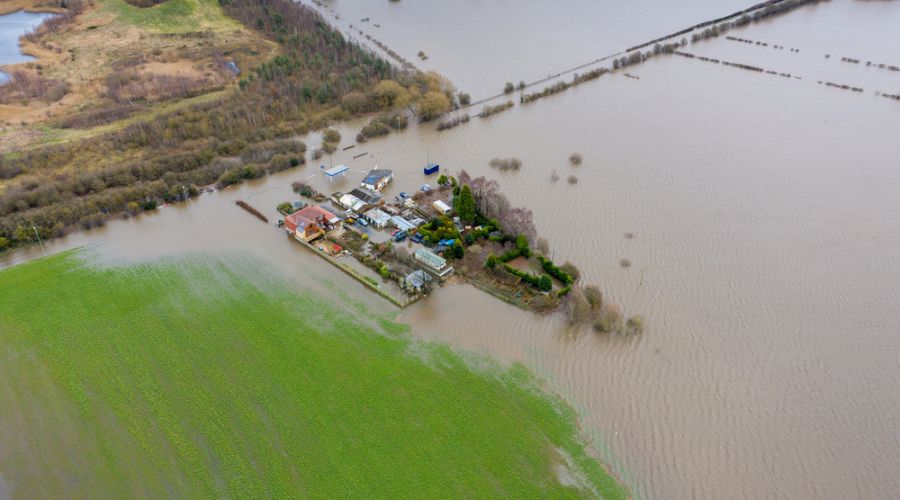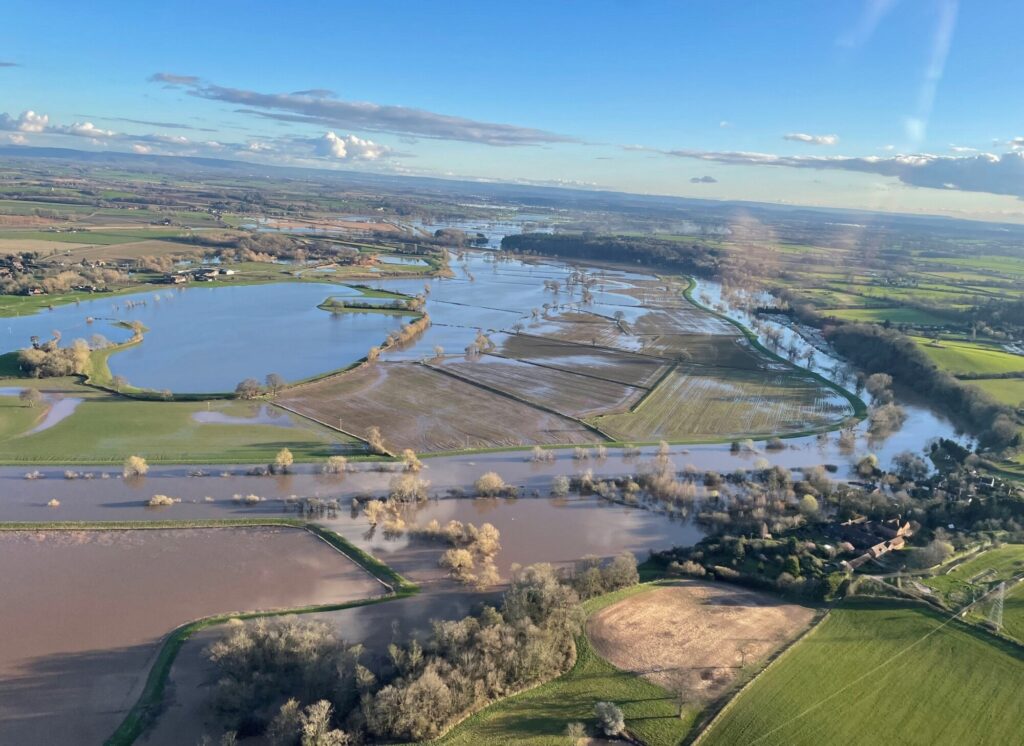Farmers need flooding fund to open following wettest winter in decades
5th April 2024
Country Land and Business Association (CLA) is calling for the flood fund to open as soon as possible following farmers fears for the 2024 harvest after one of the wettest and stormiest winters in decades.

As spring blooms and lambing continues across the UK, thousands of acres of prime food-producing land remain submerged or waterlogged, following months of relentless rainfall and the wettest 12-month period in 150 years.
February was the fourth wettest since records began in 1871 in England, with a rainfall total of 130 mm, representing 225% of the 1961 to 1990 long-term average. There have been 10 named storms in recent months.
Some winter crops did not get planted, while others have been washed away. With conditions so poor, many farmers are already fearing for harvest this year.
After storm Henk hit the country in early January, the government announced that farmers who had suffered uninsurable damage to their land from that storm would be able to apply for grants of up to £25,000 through the Farming Recovery Fund.
But the fund is still not open, three months later, and the CLA is calling for urgent action.
READ MORE: Farmers count losses yet again after Storm Henk hits the country
Worst flooding
Somerset farmer Charlie Ainge said some of his arable fields had been under water for seven weeks over the winter, citing more intense rainfall patterns and a lack of maintenance work on the Somerset Levels by the Environment Agency as key factors.
Mr Ainge said: “This year has been terrible, and to still be under water in spring is unheard of. Our whole arable operation is on hold because there’s nowhere to drill, and we’ve reached the point where we’re seriously considering its long-term future.
“Our flock costs have also doubled as we’ve had to buy in fodder for our sheep, so financially it’s all hit us very hard. It leaves us with a massive tidy-up bill, and the support is laughable.”
Stephen Watkins said his Worcestershire farm had experienced some of its worst flooding since 1947, making it impossible to plant sugar beet or potatoes in mid-March as normal.

Mr Watkins said: “We’re by the River Severn so do expect some issues, but it’s come over the flood levee twice, which is significant.
“Any government funding is time-consuming to apply for and difficult to comply with – we were told last time that we hadn’t take enough pictures. They need to get on and help us.”
Especially difficult months

CLA president Victoria Vyvyan said: “The fund is welcome, but farmers need help right now and it must open as soon as possible.
“The impact of flooding on farm businesses up and down the country is profound, damaging infrastructure such as fencing and walls, contaminating soil, and jeopardising environmental projects. Crops and livestock have been badly affected, and any reduction in domestic food production may lead to an increase in imports and prices.
“Farmers are dynamic and forward-thinking and are used to working with extreme weather, but the last few months have been especially difficult. The winter rainfall is pushing businesses to their limit, and many fear for this entire cropping season.”
Calls for appropriate compensation
Landowners do not receive compensation when the Environment Agency effectively floods their fields to protect downstream houses and villages, despite the harm to their crops and livelihoods, and the CLA is calling for more support to repair the damage.
Ms Vyvyan added: “Years of poor management of watercourses and flood defences by the Environment Agency, often caused by lack of resources, means farmers are still unfairly shouldering the burden of flooding devastation.
“Farming businesses are willing to help protect homes and businesses from flooding by storing floodwater, but in turn there should be recognition of the added burdens on farmers with appropriate compensation.”
Read more rural news.
